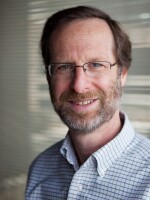MICHEL MARTIN, HOST:
The long-awaited global climate summit known as COP26 got underway in Glasgow, Scotland, today. The United Nations climate chief, Patricia Espinosa, launched it with a dose of optimism.
(SOUNDBITE OF ARCHIVED RECORDING)
PATRICIA ESPINOSA: Let ours be an era in which we have healthier relationships with nature, and let COP26 mark its beginning. It's entirely within our grasp.
MARTIN: But there's a feeling that this meeting may not deliver the kind of dramatic change that some were hoping it would and that most scientists say is needed. Joining us from the conference is NPR's Dan Charles. Dan, welcome. Thanks for joining us.
DAN CHARLES, BYLINE: Hi, Michel. Nice to be here.
MARTIN: Can you give us a sense of the mood there right now?
CHARLES: I would call it subdued. Patricia Espinosa gave that rousing speech, but soon after that, she appeared at a press conference, and she had this to say.
(SOUNDBITE OF ARCHIVED RECORDING)
ESPINOSA: We are not where we need to be, and I think that's something that we need to be very honest about.
CHARLES: She was referring to the pledges that countries have made to cut their emissions of the gases that are heating up the planet. Those pledges, so far, are not enough to get to that goal that countries have set to avoid the worst effects, you know, from the planet heating up, particularly the pledges from countries like China or India that are not nearly as rich as, say, the U.S. And they want to - don't - they don't want to sort of hamper their economic growth.
MARTIN: Well, it is also true that the U.S. is having trouble keeping its climate promises as well, isn't it? I mean, the Biden administration does have an ambitious plan, but it's stuck in Congress, right?
CHARLES: That's right. President Biden is going to be here tomorrow, and he is going to be talking about the proposals he's making, not so much the fact that they're stuck, about - you know, he'll talk about how he's committed to big changes in the U.S. in power plants, transportation, you know, heating your home, all the things that matter for the climate. So his message is going to be, we are going to get to this goal of net-zero emissions by 2050 one way or another. And that is a big change, you know, compared to the Trump administration, which actually tried to pull out of these talks altogether.
MARTIN: And Biden just ended this meeting of the 20 biggest economies in the world, the so-called G-20. He's declaring it a success when it comes to climate change, and I'm just wondering if people in Glasgow are seeing it that way?
CHARLES: It really depends what you're comparing it to. You know, if you compare it to what needs to be done to reach this goal of keeping the world from warming more than 1.5 degrees Celsius, 2.7 degrees Fahrenheit, it definitely is not enough. And climate activists are really talking about how disappointing it is. But if you compare it to what countries were willing to do, say, just a year ago, it looks better. You know, one example that G-20 announced, they'd agreed to stop financing coal power plants in other countries pretty much right away. Alok Sharma, the president of this COP26 meeting, said a year ago most people would have been skeptical such a move was even possible.
(SOUNDBITE OF ARCHIVED RECORDING)
ALOK SHARMA: We are consigning coal to history.
MARTIN: So one last thing - has there been any progress when it comes to financial aid to less affluent countries to help them cope with climate change and also to switch to clean energy?
CHARLES: That is a very big issue here. The rich countries promised $100 billion a year in Paris in 2015. They really dropped the ball on this. I'm told there is a lot of anger about it. There's been a lot of work on this, and there may still be some more announcements that will come out before this meeting is over.
MARTIN: That was NPR's Dan Charles at the COP26 Climate Summit in Glasgow. Dan, thank you.
CHARLES: Thank you. Transcript provided by NPR, Copyright NPR.






